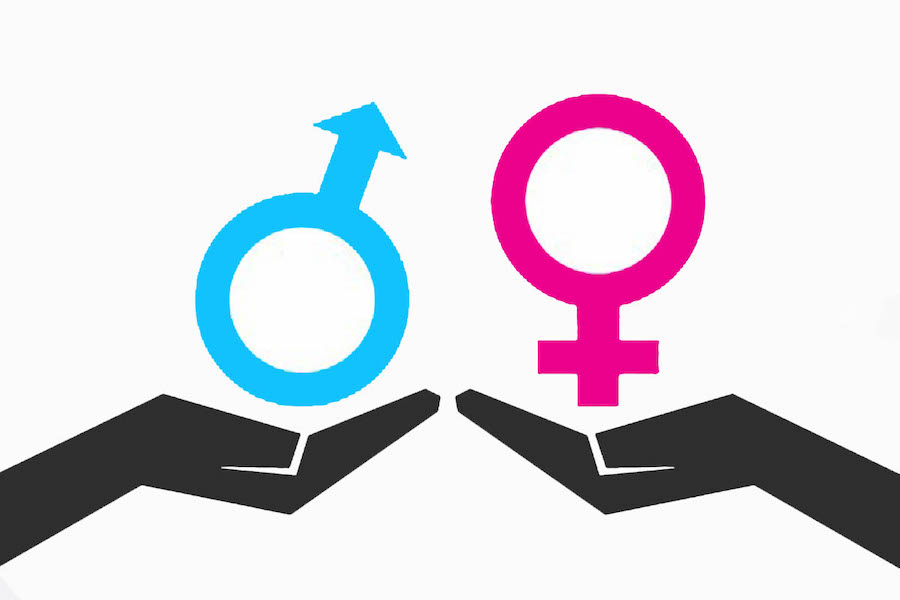بِسْمِ اللهِ الرَّحْمٰنِ الرَّحِيْمِ
Most Muslims these days choose to avoid this sensitive subject with their kids/siblings and companions, not knowing that the Ummah is being exposed to sexual implications every single day in the West. Schools are teaching children and teenagers about sex using the scope that “we in schools do not tell the child to engage in sexual acts but in case they do, we teach them how to prevent STDs and pregnancy”.
The problem with this notion is that these education systems are incomplete, they do not educate about the morality associated with sex. Furthermore, in the times we live in now, same sex relations are put forward as something perfectly normal; that children should “explore their sexuality” while at the same time, we as Muslims are neglecting this topic entirely.
Some examples of the immoral teachings some educators give:
- Nudity in homes with the children (such as in the shower or bedroom) is a good and healthy way to introduce sexuality to kids under 5. In the same book, the author also states that 75% of all child molestation and incest (500,000 known cases per year) occur by a close relative.
- A child playing with another child’s genitals is a permissible “naive” method of exploration and should not be a reason for punishment. The author of this saying was also aware that boys as young as 12 have raped girls as young as 8. Where do we draw the line?
- Children caught looking at dirty magazines or scenes should not be made to feel guilty, rather the parents should use these opportunities to put across some useful points about sexual attitudes. So essentially, pornography is perfectly normal and should start with the parents’ guidance.
- If the daughter or son is already sexually active, instead of telling them to stop, the parents’ moral duty is to protect their health and career by providing them information and means for contraception and avoiding STDs.
We must step up and act upon this epidemic that has taken over the world’s spirituality. Sexual implications are everywhere and children are being taught by schools and friends that it is all normal. Furthermore, too much of the Muslim ummah is postponing marriage for invalid reasons.
We must form a curriculum for sex education in Islam. Before teaching anything about the human anatomy or physiology, the belief in Allah must be established – the fact that He has created mankind to follow His teachings and that He knows far more what is best for human beings than any teacher in this world can advise. As the renowned philosopher Dostoevsky said, “without God, everything is possible”, and we see it around us.
We must also stop putting forward the message that sexual intimacy is in itself an indecent act. Allah has made intimacy part of His creation and the indecency is only when it is done outside of marriage. This must be made clear to the Muslims as we have two extremes – on one side there are those who simply ignore the subject entirely and on the other there are those who educate their children through fear or disgust, without true knowledge. Many of these children grow up and go into marriage already misinformed about sexual matters which can really mess up a person’s psychological image on sexual intimacy.
The young should be taught separately from the teenagers – the curriculum should be tailored according to the age group. We must also form a premarital programme for those who are getting married, to know the ins and outs of sexual intercourse, what is permissible and what is not, and the Sunnah of our prophet (ﷺ).
An example of how this could be laid out:
- Sexual growth and development
– Time table for puberty
– Physical changes during puberty
– Need for family life - Physiology of reproductive system
– For girls – the organ, menstruation, premenstrual syndrome
– For boys – the organ, the sex drive - Conception, development of the foetus and birth
- Sexually transmitted disease (VD/AIDS) (emphasis on the Islamic aspect)
- Mental, emotional and social aspects of puberty
- Social, moral and religious ethics/rulings
- Moral aspects regarding same sex relations
- How to avoid peer pressure and tempting situations/surroundings
This is a subject that we must not neglect out of our own discomfort or embarrassment. Our people are struggling and the statistics speak for themselves.
- Approximately 1 million or more teenage girls are getting pregnant every year; around 3000 a day, 80% of which are unmarried. Out of the million, 450,000 are aborted.
- In 1950 the incidence of birth from unmarried teenagers was only 13.9%, but in 1985 it increased to 59%.
- 37.9 million people living with AIDS in 2018.
- At least 28,258 users are watching pornography every second; 1 in 5 internet searches are for the filthy material.
This is merely scratching the surface of what sexual immorality has become.
The people in the time of our prophet (ﷺ) were not shy to ask him about all affairs including matters of sex and intimacy and he (ﷺ) was never shy to respond. For us to avoid this subject with our children/ whoever may need the knowledge or to postpone it to a point when it is too late i.e. already taught through secular studies or unworthy knowledge by others, then we have gone against the sunnah of our prophet (ﷺ).
May Allah protect the Ummah when it comes to sexual immorality especially our youth and give us the strength to teach ourselves, our children and those in need of the knowledge.
Allah knows best.
